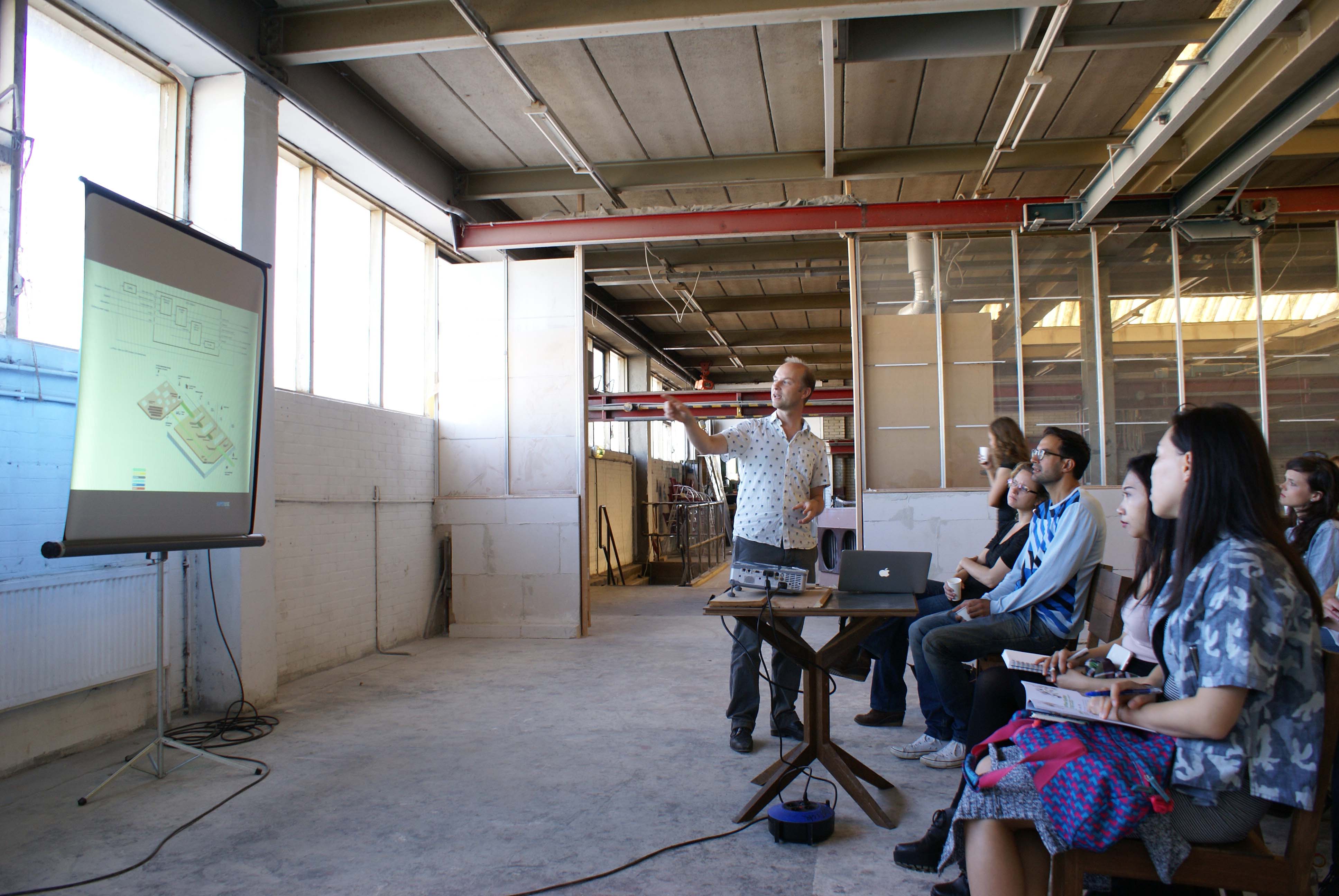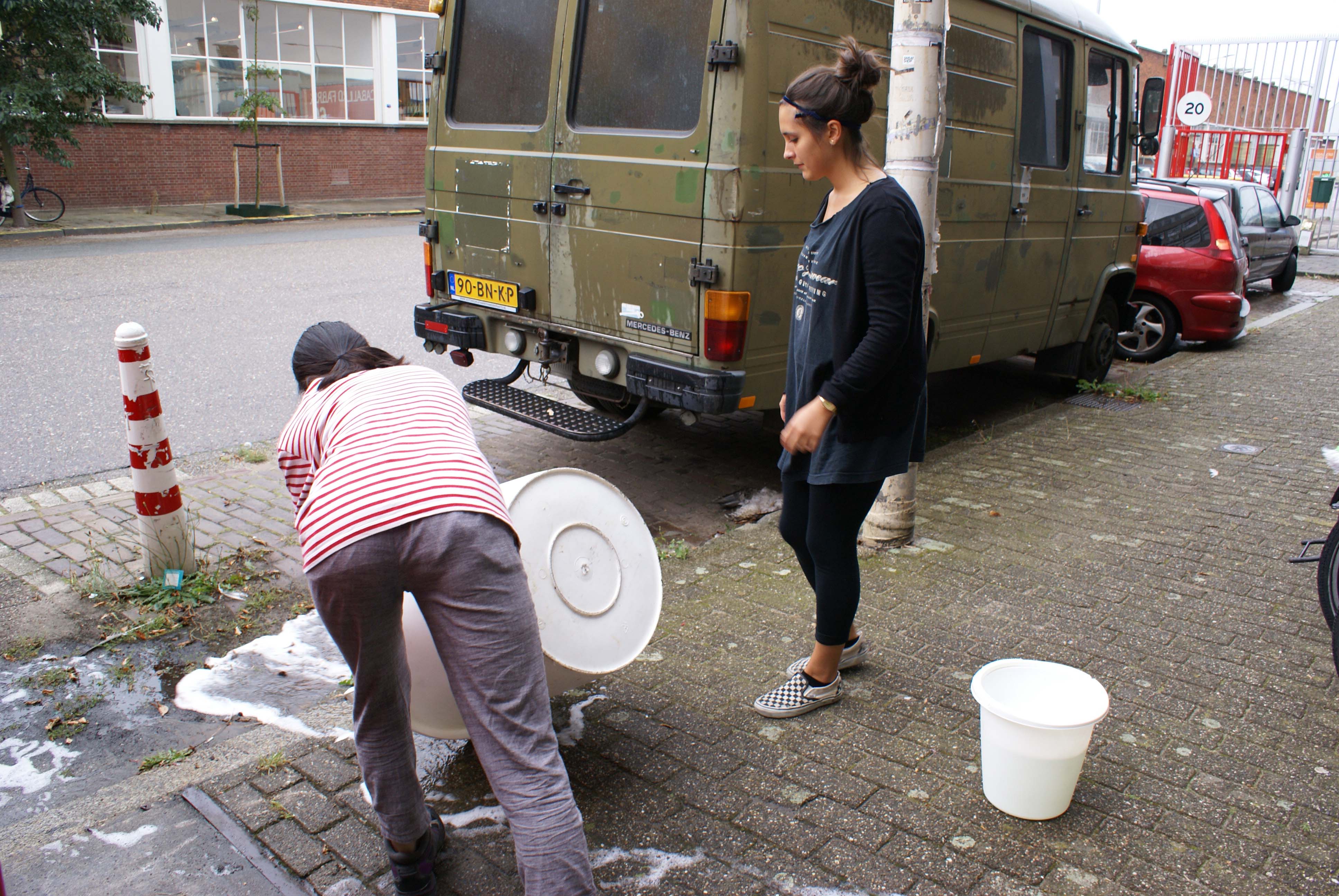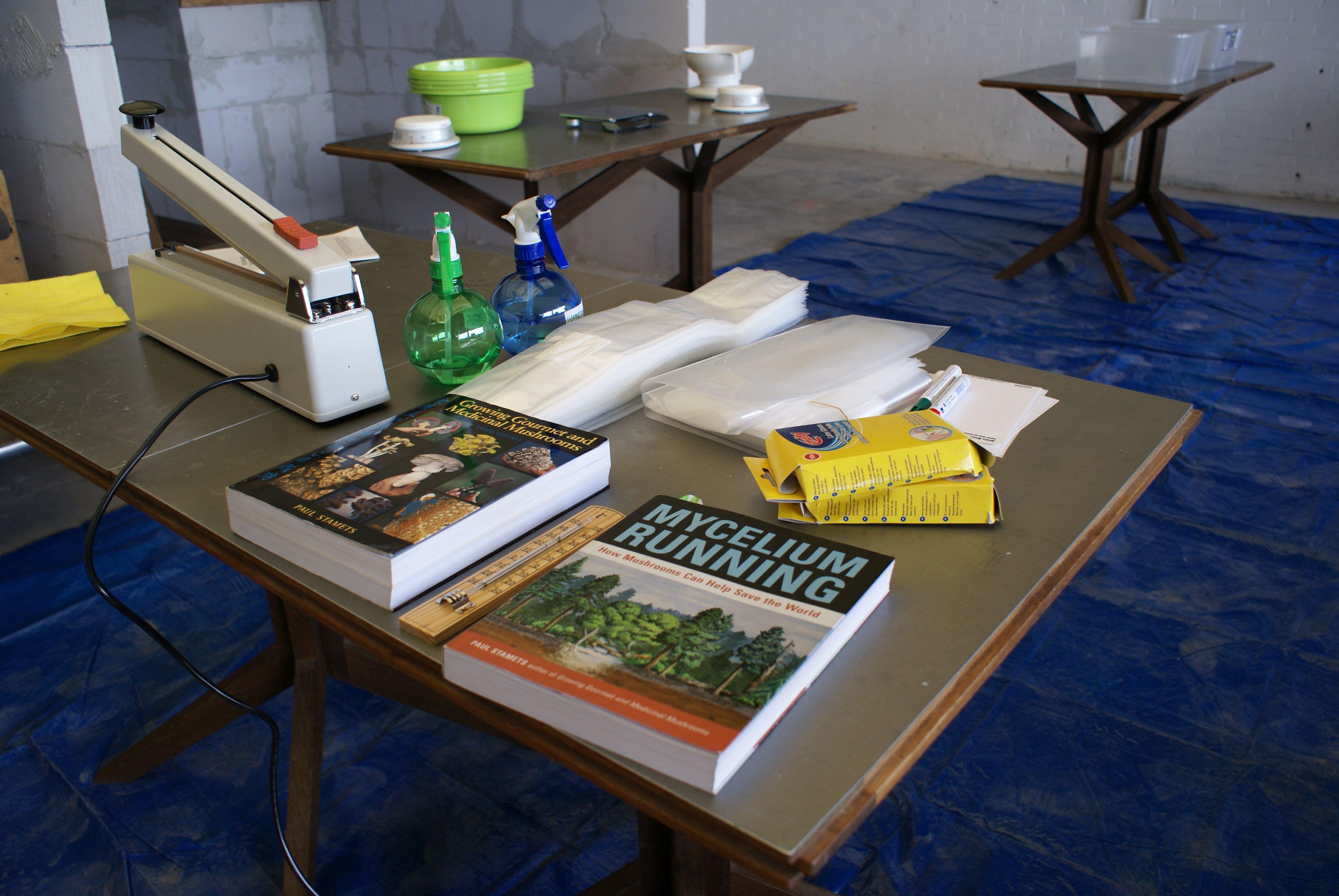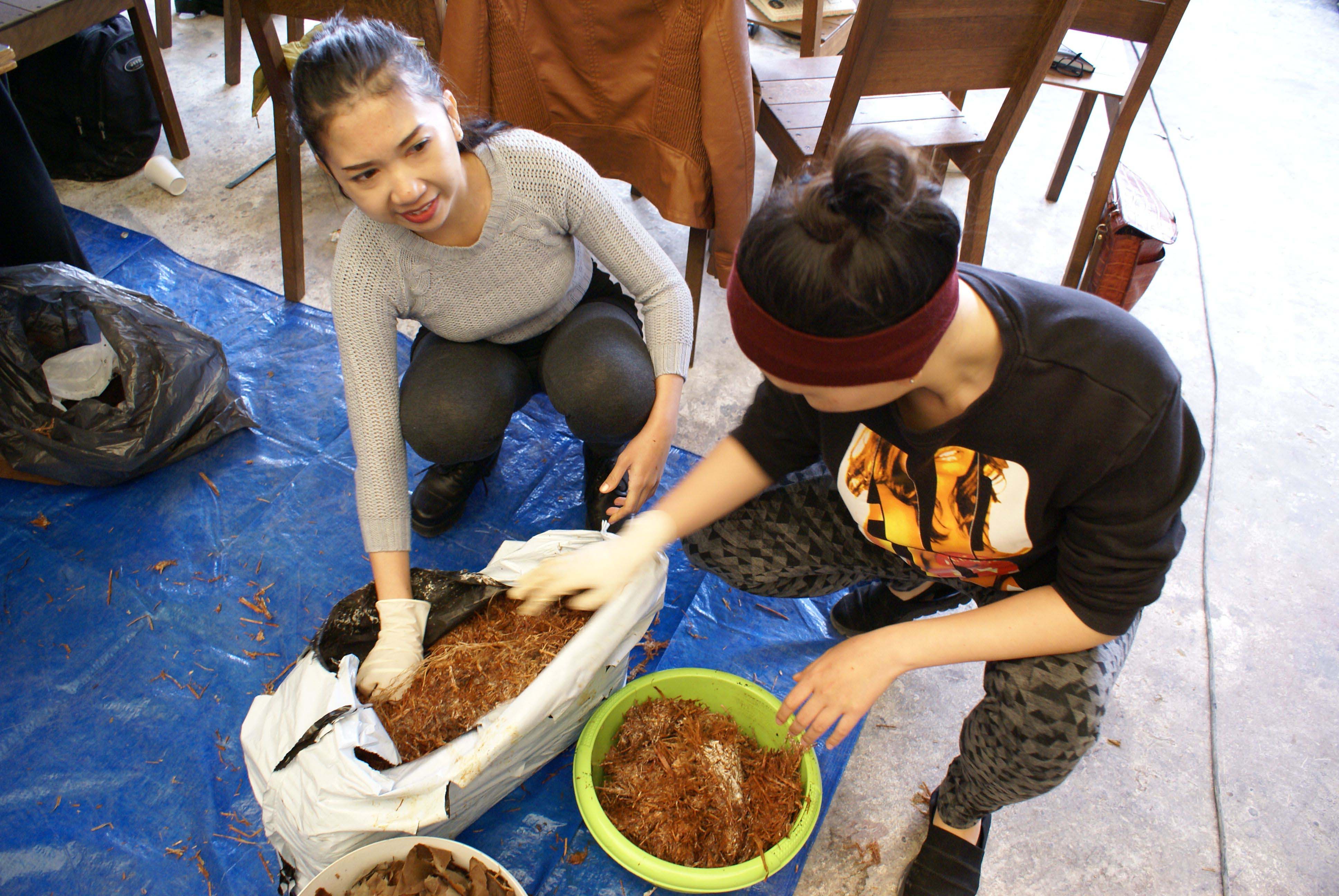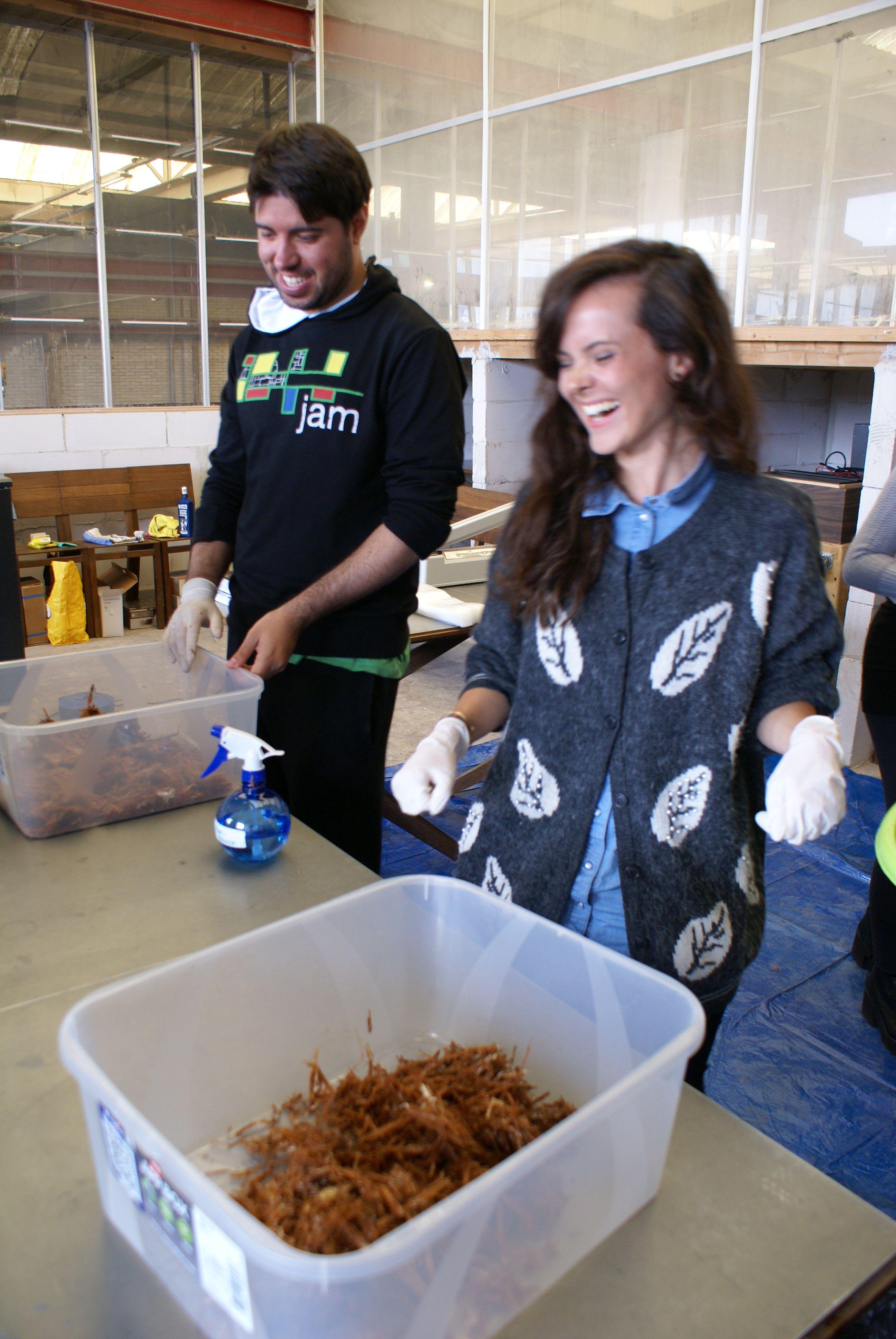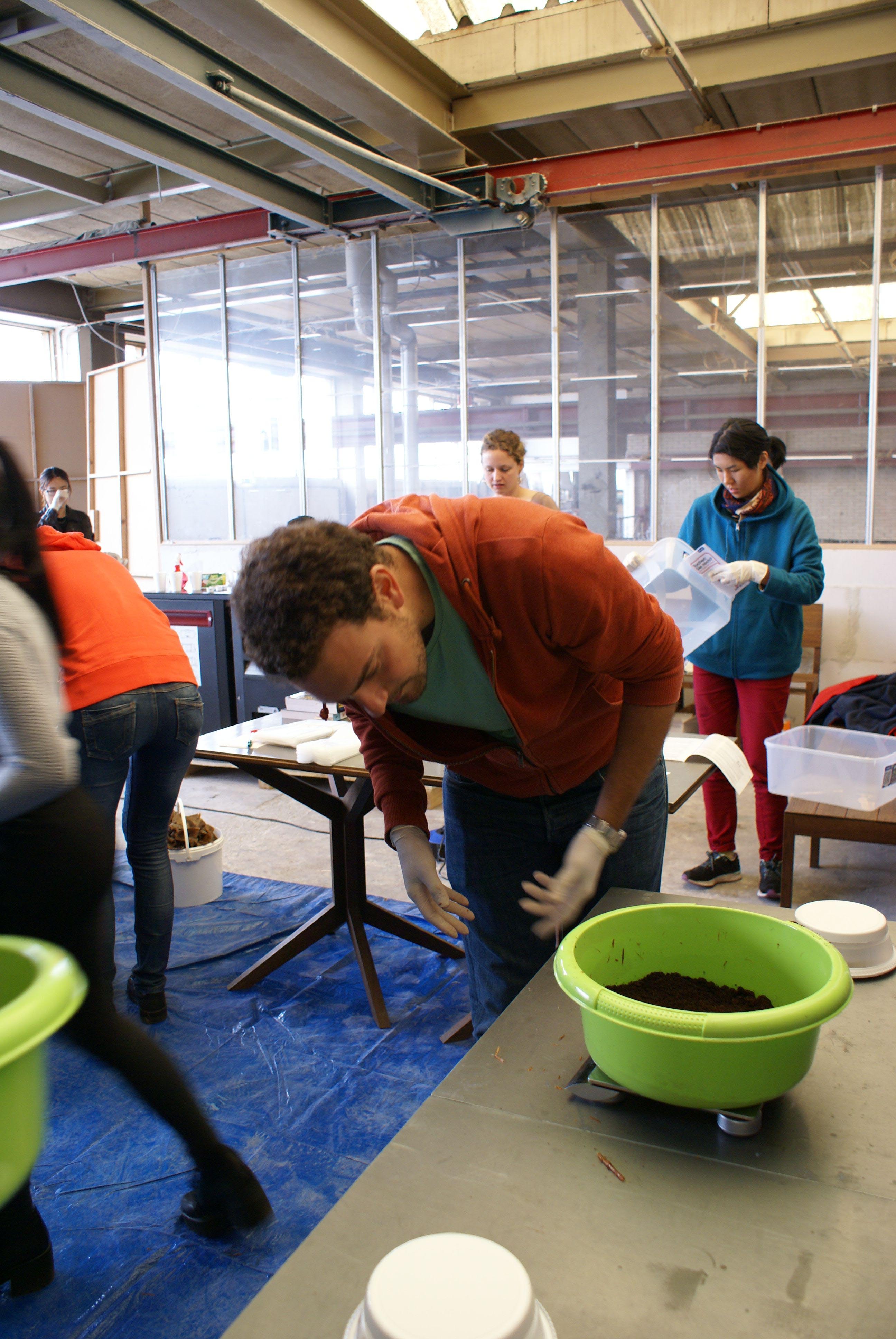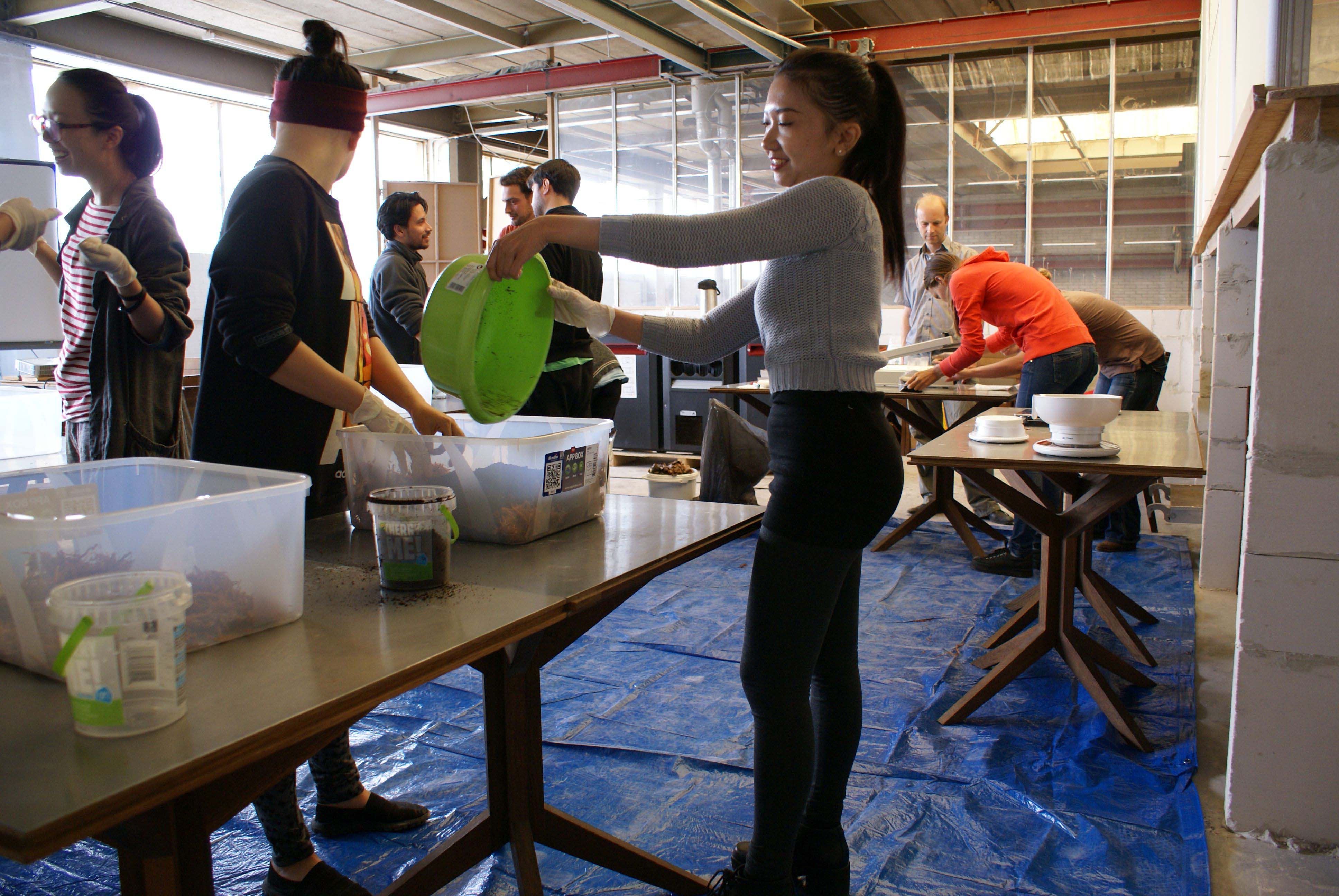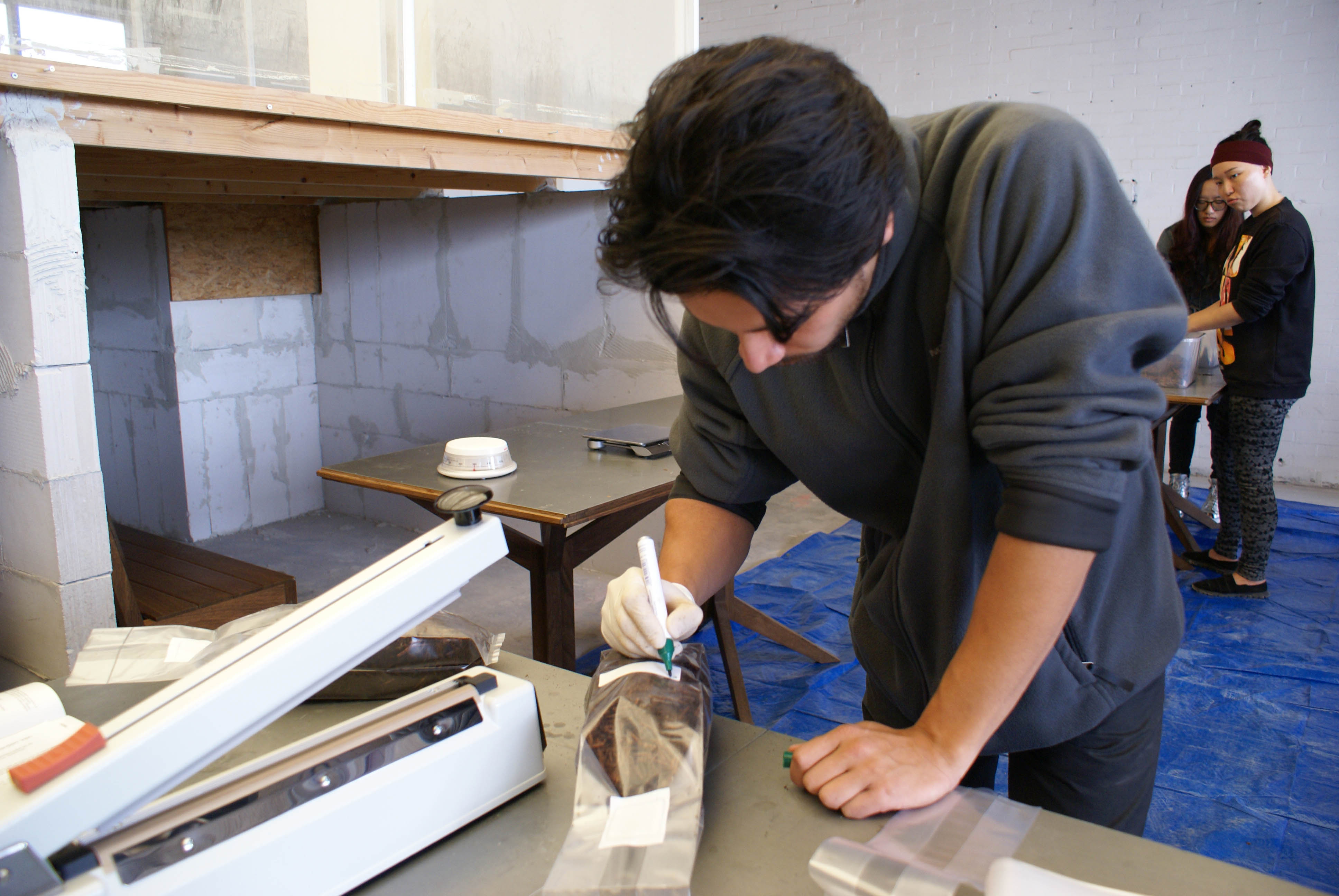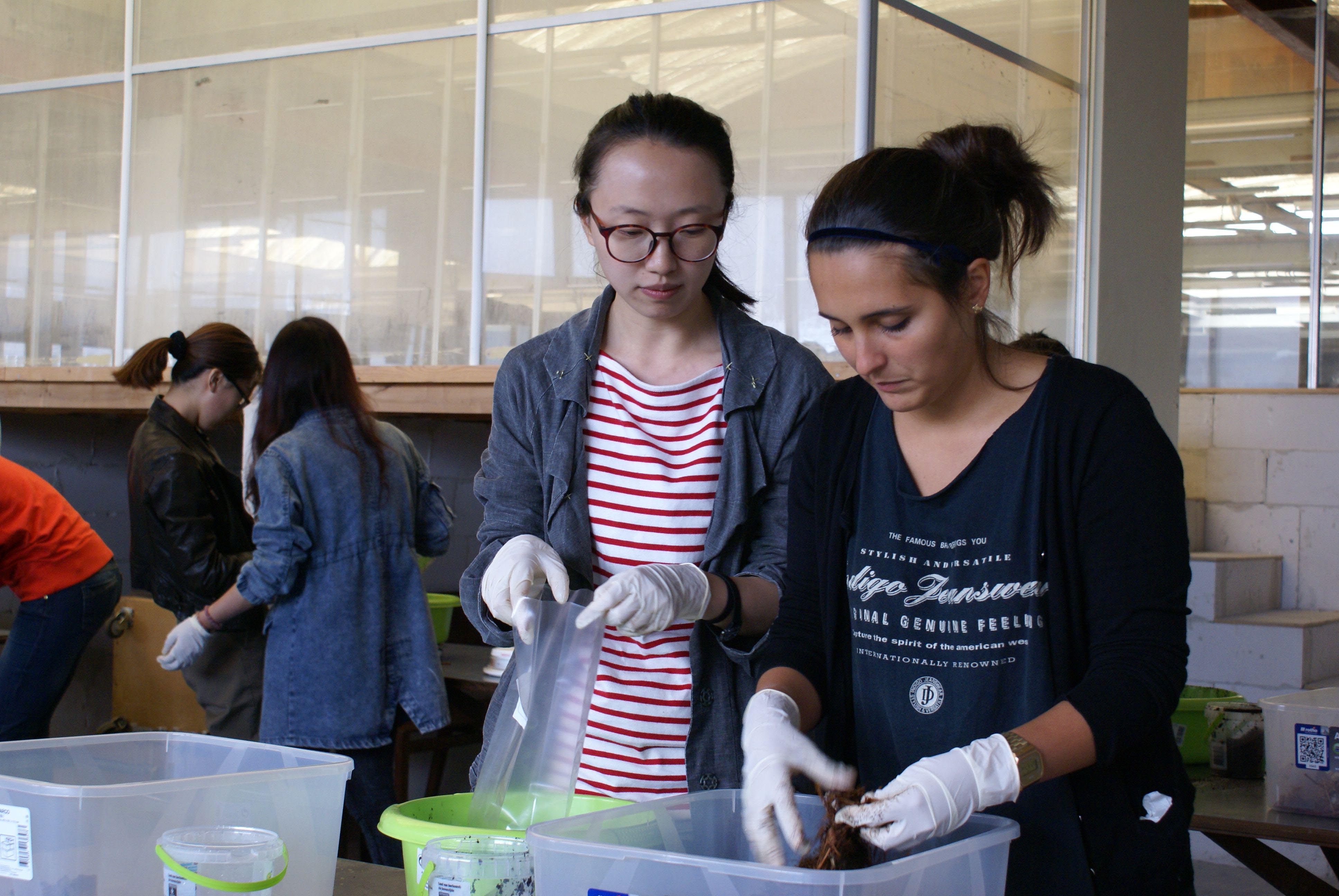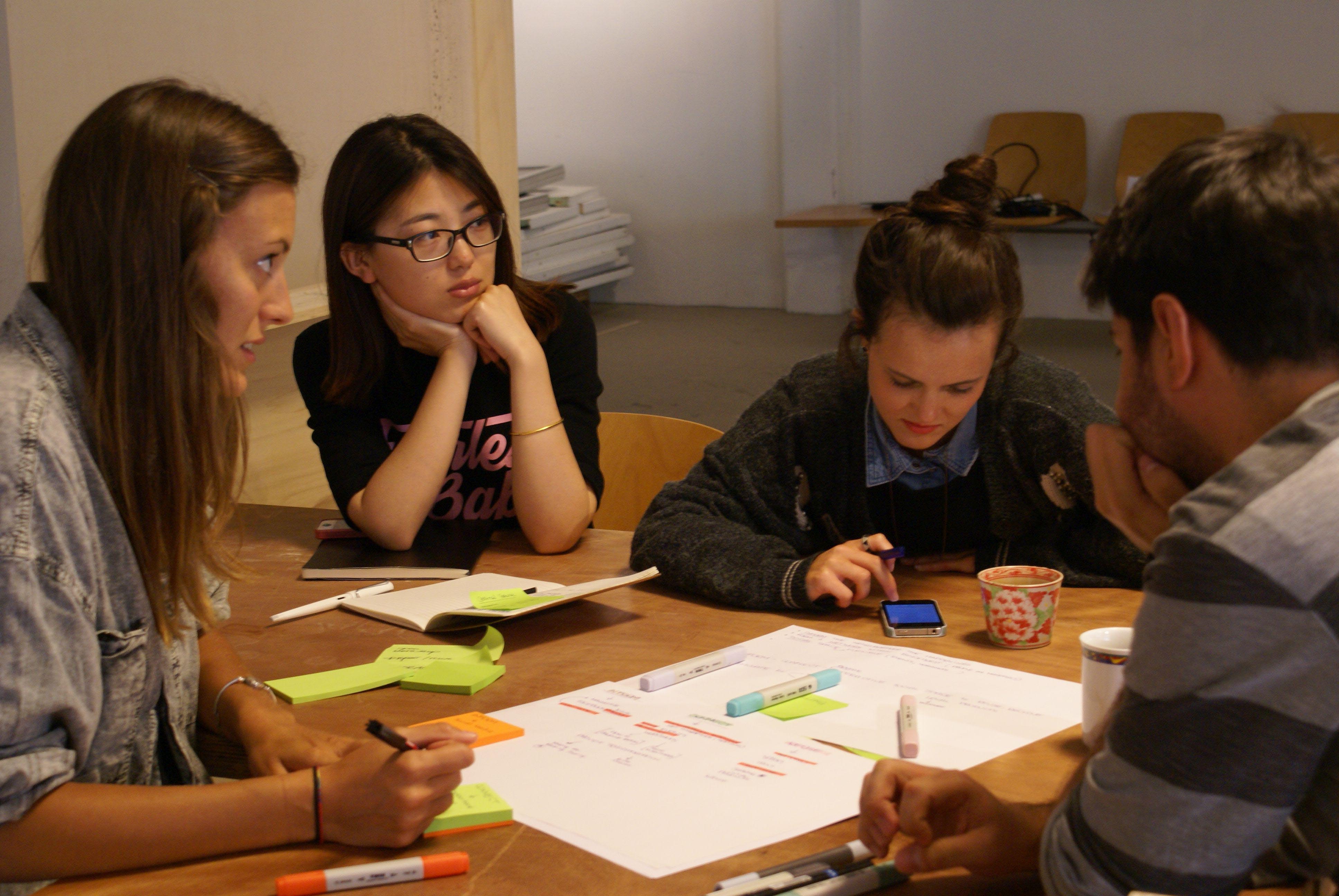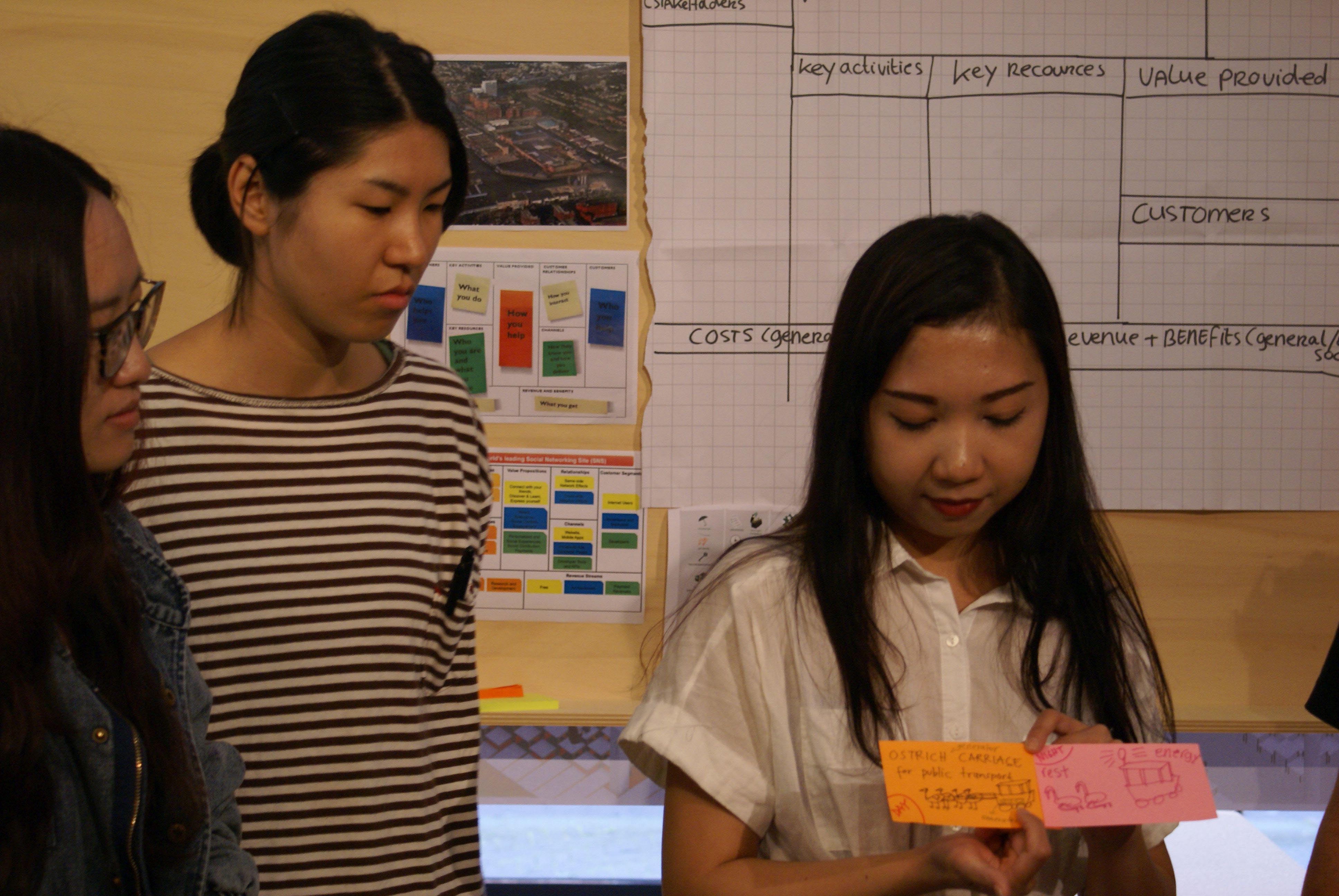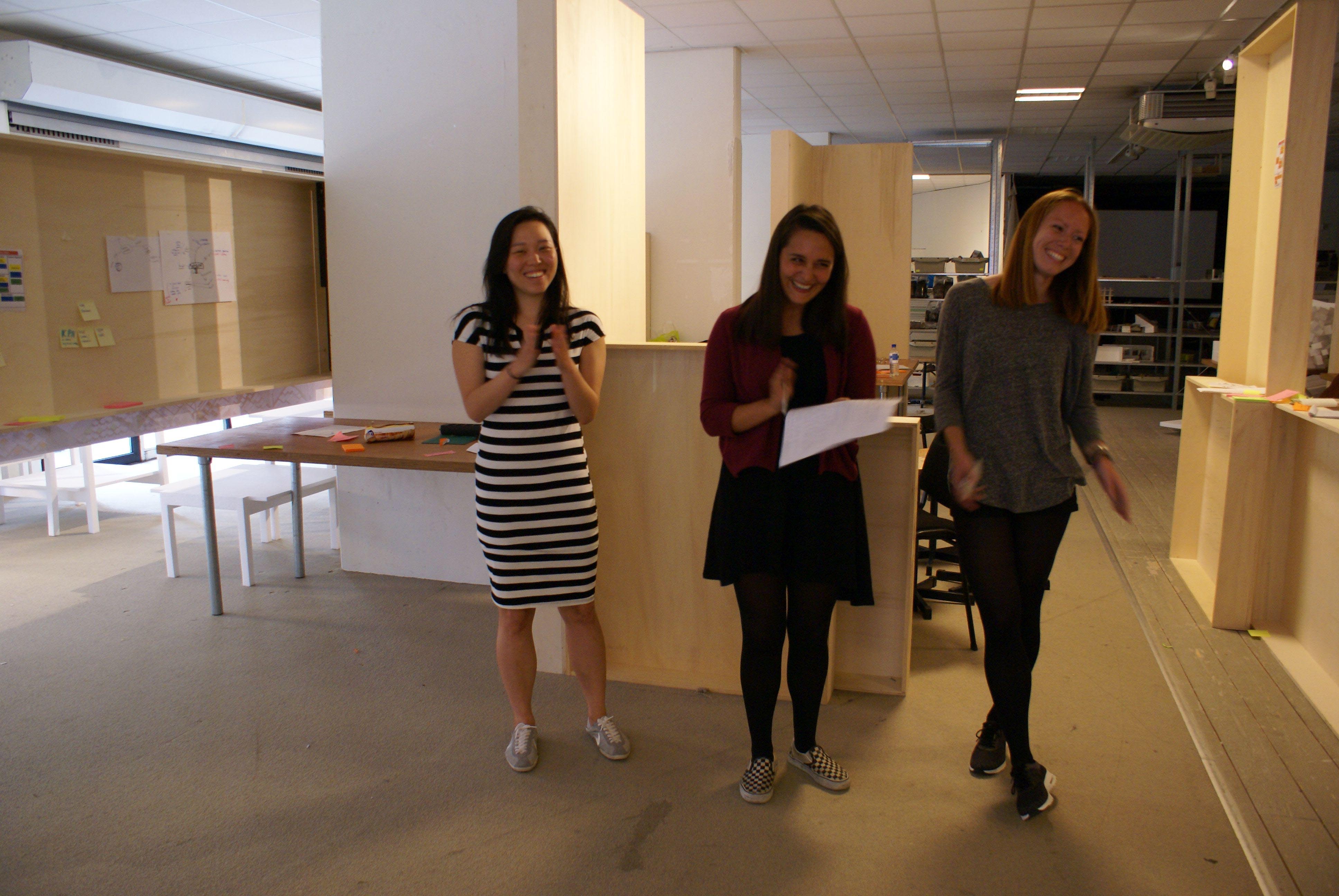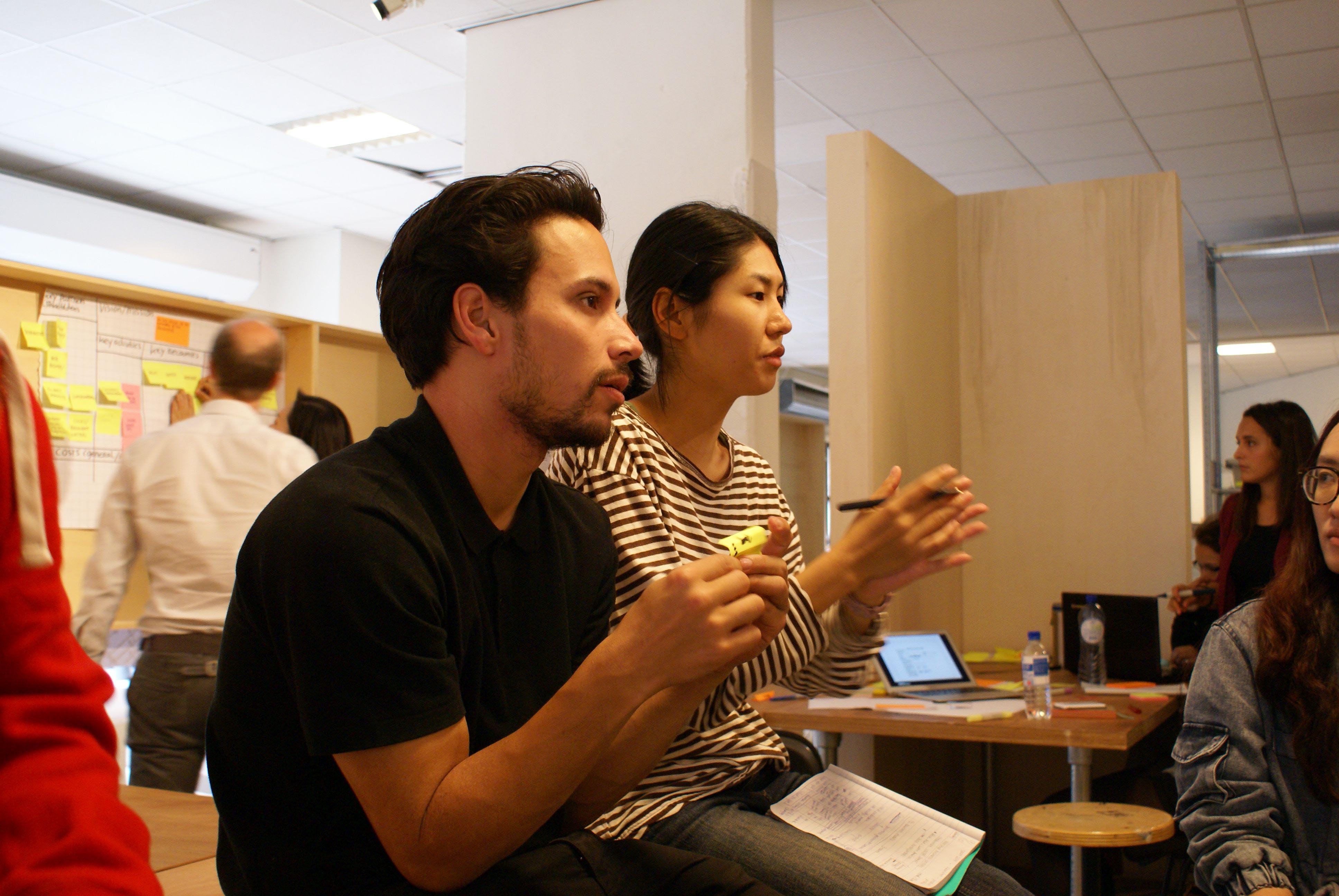Introduction Workshop FLOWS, 8 September – 12 September + 1 October 2014
Workshop A Systemic Design Challenge for The Binckhorst The Hague with Jan Jongert and Lizanne Dirkx, Mark van den Ouden, Anna Boisnic, Marije van Zomeren, Jessica Loudon and Workshop Systemic Design Challenge for The Binckhorst The Hague with Jan Jongert and Lizanne Dirkx (www.superuse-studios.com), Mark van den Ouden, Anna Boisnic, Marije van Zomeren, Jessica Loudon and Sabrina Lindemann.
During the introduction week, the Flows programme led by Jan Jongert and Lizanne Dirkx (both www.superuse-studios.com) host a short practice based assignment at The Binckhorst in The Hague. Students will learn about the different flows of the area and how to deploy them in their design proces.
The assignment for this first week is to prepare conditions to start an enterprise at The Binckhorst turning local (organic) waste streams into valuable products for the local market. Case study: Mushroom Kits.
Binckhorst is an industrial area in The Hague. To this day, the site has been dominated by the graphic, construction, and automotive industries, but in the original master plan of the government there was little room for these industries.
They did not fit with the intended identity of a high-quality urban living-working area; so the starting point for development was a clean slate. As a result, recent years companies have been dislocaded, resulting in high vacancy of both small industrial buildings and large offices of, for example, KPN.
Due to the vast amount of inexpensive spaces, in recent years many artists and creative people have moved into the area. Slowly there grows a new mix of old and new users who mutually inspire each other. This creates new and surprising opportunities for business and development of the area.
In early 2014 Superuse Studios made a quick scan of the area, to identify where (material)flows are lost or where flows are underused. Simultaneously, stakeholders who might benefit from these waste streams were interviewed. As a start, this has led to an interesting collaboration between a baker and brewer. The waste grain from the brewing process can be used as raw material for bread from the baker.
During the Flows introduction programme students will take a look at different residual food flows, for example coffee grounds. Caterer Sodexo delivers coffee to a large number of companies in the area, leading to an equally large flow of coffee grounds. Coffee grounds turn out to be an excellent breeding ground for mushroom cultivation and a local mushroom grower could start to make use of it. Apart from coffee or brewers’ grain there are still other waste flows to be identified in the Binckhorst area which could lead to new products.
- Introduction FLOWS by Jan Jongert
- Cleaning the containers.
- Preparations
- Mushroom seeds.
- Filling the containers with mushroom seeds.
- Checking the right weight of coffee waste.
- Mixing coffee waste and musroom seeds.
- Labeling the bags.
- Filling the bags.
- Making the businessplan.
- Presenting the business plan.
- Presenting the business plan.
- Presenting the business plan.
